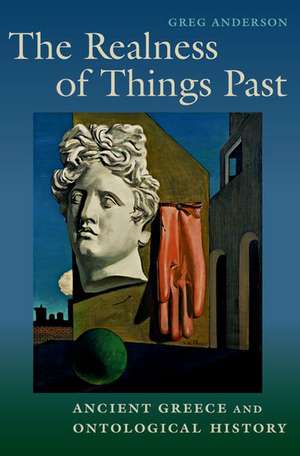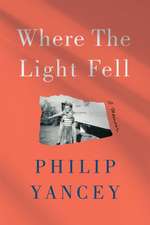The Realness of Things Past: Ancient Greece and Ontological History
Autor Greg Andersonen Limba Engleză Paperback – 3 aug 2021
| Toate formatele și edițiile | Preț | Express |
|---|---|---|
| Paperback (1) | 191.32 lei 10-16 zile | |
| Oxford University Press – 3 aug 2021 | 191.32 lei 10-16 zile | |
| Hardback (1) | 576.45 lei 10-16 zile | |
| Oxford University Press – 20 sep 2018 | 576.45 lei 10-16 zile |
Preț: 191.32 lei
Preț vechi: 229.82 lei
-17% Nou
Puncte Express: 287
Preț estimativ în valută:
36.61€ • 38.40$ • 30.48£
36.61€ • 38.40$ • 30.48£
Carte disponibilă
Livrare economică 28 februarie-06 martie
Preluare comenzi: 021 569.72.76
Specificații
ISBN-13: 9780197576700
ISBN-10: 0197576702
Pagini: 338
Ilustrații: 3
Dimensiuni: 155 x 231 x 23 mm
Greutate: 0.5 kg
Editura: Oxford University Press
Colecția OUP USA
Locul publicării:New York, United States
ISBN-10: 0197576702
Pagini: 338
Ilustrații: 3
Dimensiuni: 155 x 231 x 23 mm
Greutate: 0.5 kg
Editura: Oxford University Press
Colecția OUP USA
Locul publicării:New York, United States
Recenzii
A very ambitious piece of work. It will attract controversy, but its direction of travel in a world where modern values and concerns are too easily imposed on the ancient is to be applauded.
Anderson's central claim is persuasive...[His] stark reminder of the ontological unfamiliarity of the premodern world should encourage us not just to be more careful in our assumptions about democracy in the past but perhaps also about democracy in the present.
By challenging the idea that Athens was an early version of modern societies, Anderson raises a number of very important issues and rightly challenges a whole nexus of preconceived assumptions; even if one disagrees with some of his answers, this is a thought-provoking book that must be read and engaged with widely.
Anderson's thorough critique of conventional historicism will be a rewarding read for scholars interested in reflecting on their own historical practice. His radical, often polemical, posture strikes at the root of (western, modern, liberal, materialist) certainty and his approach to the past will lead us to our own "radical alterity" in the present. It is tempting to say that the work is more suitable to specialists and advanced graduate students but that would underestimate the potential for this book to raise important questions for those who continue to be taught the grand narratives of non-modern peoples whose voices we have lost. â the greater strength of this important book is his invitation
Anderson's central claim is persuasive...[His] stark reminder of the ontological unfamiliarity of the premodern world should encourage us not just to be more careful in our assumptions about democracy in the past but perhaps also about democracy in the present.
By challenging the idea that Athens was an early version of modern societies, Anderson raises a number of very important issues and rightly challenges a whole nexus of preconceived assumptions; even if one disagrees with some of his answers, this is a thought-provoking book that must be read and engaged with widely.
Anderson's thorough critique of conventional historicism will be a rewarding read for scholars interested in reflecting on their own historical practice. His radical, often polemical, posture strikes at the root of (western, modern, liberal, materialist) certainty and his approach to the past will lead us to our own "radical alterity" in the present. It is tempting to say that the work is more suitable to specialists and advanced graduate students but that would underestimate the potential for this book to raise important questions for those who continue to be taught the grand narratives of non-modern peoples whose voices we have lost. â the greater strength of this important book is his invitation
Notă biografică
Greg Anderson holds degrees from the Newcastle and London Universities in his native UK and a PhD from Yale. He is currently Associate Professor of History at Ohio State University, where he has taught since 2005. His primary research areas are ancient Greek history, historical thought, and critical theory.

